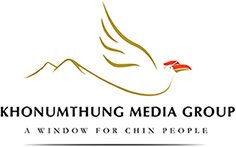Nine state/ethnic representative councils, including Ethnic Revolutionary Organizations (EROs), jointly announced on 19 September that they will work together to realize a stronger future Federal Democratic Union.
The nine EROs and state/ethnic representative councils that issued the joint statement are: the Chin National Front (CNF), Karen National Union (KNU), Karenni National Progressive Party (KNPP), Karenni State Consultative Council (KSCC), Pa-O National Federal Council (PNFC), New Mon State Party – Anti-Dictatorship (NMSP-AD), Mon State Federal Council (MSFC), Ta’ang Political Consultative Committee (TPCC), and Women’s League of Burma (WLB).
Commenting on the announcement, Nang Moet Moet, a spokesperson for the WLB, said, “The main point is that when the nine groups mentioned in the statement on approaching building a Federal Democratic Union, they will take a bottom-up approach. This means strengthening the states to strengthen the union. Another consideration is that when we talk about federalism, for a truly strong federal union to exist, whether we’re talking about states, units, or ethnicities, these need to be strong for federalism to be robust. This is what we’re thinking about.”

Nang Moet Moet continued, “Our country is diverse. We fully believe that if we focus only on the center, centralizing power from the top down, with the center holding all the power and the states or units at the bottom only having some powers, the union will not be strong. So, to create a strong Union, we need to recognize our different historical backgrounds, cultures, and diverse political traditions. That’s why we’ve announced that we need to start from the bottom up.”
She added that after holding multiple negotiations, the nine ethnic revolutionary organizations and state/ethnic representative councils reached agreements and set future action plans regarding Bottom-up Federalism, which aims to strengthen the Union by first strengthening the states.
Bottom-up Federalism states that (a) the original owners of sovereign power are the states/federal units and the people within these states/federal units; these units are based on equality and self-determination; and the distribution of power will be based on the principles of sovereignty, unity, proximity to the people, and proportionality.

It was reported that they also discussed and established processes for further negotiations and implementation of Bottom-up Federalism among the revolutionary forces.
Nang Moet Moet said, “Although only nine groups are currently involved, we plan to continue working to include other groups in the future. When we talk about other groups, we mean organizations that have formed based on regions, states, or ethnicities. Regardless of how you look at it, the fact that they’ve organized shows they’re thinking about strengthening their state, region, or ethnicity. Just as we’ll continue to work on including these people, we’ll also continuously carry out collaborations between states and units.”
It was learned that these nine ethnic revolutionary organizations and state/ethnic representative councils will jointly implement these agreements and action plans to strengthen the future Federal Democratic Union.
This joint statement was issued to announce that these nine EROs and state/ethnic representative councils will work together in building a Federal Democratic Union, starting from the revolutionary period/interim period, taking an approach that focuses on strengthening the states first, with the belief that strong states will lead to a strong union.


